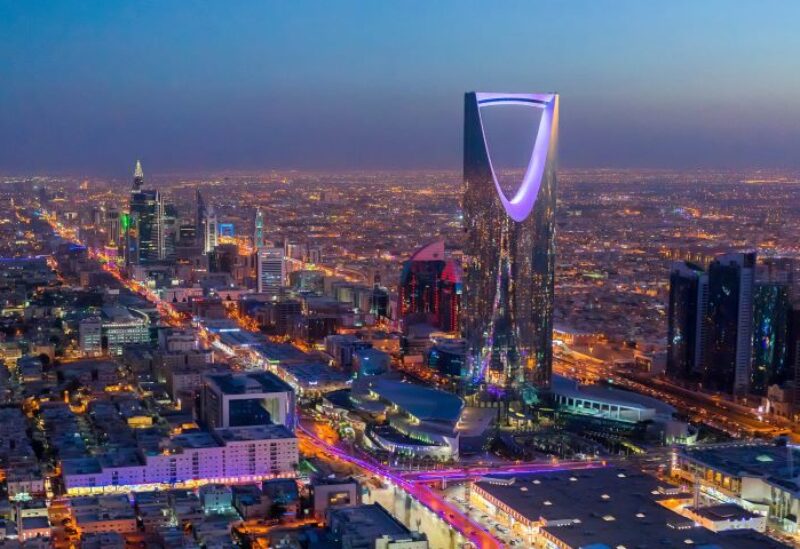
Saudi Arabia
The economies of the Gulf Cooperation Council are likely to develop quicker in 2022 as they recover from the coronavirus epidemic, thanks to rising oil prices and the expansion of their non-oil sector, according to Emirates NBD.
Gulf economies are expected to increase 5.1 percent on average this year, after recovering to 2.3 percent in 2021 and contracting by 4.9 percent the previous year when the epidemic began, according to the analysis, prepared by Dubai’s largest lender by assets Khatija Haque.
“The recovery in the GCC economy gained traction in the second half of 2021 as travel restrictions lifted, tourism recovered, and domestic demand surged,” according to the research.
The UAE announced Dh388 billion ($105.72 billion) in economic stimulus to counteract the impact of the epidemic, which sent the world economy into its worst recession since the 1930s. This includes the central bank’s Dh50 billion Targeted Economic Support Scheme (Tess), which aims to increase liquidity in the financial and banking sectors.
The UAE Central Bank said last month that it will prolong assistance measures targeted at assisting lenders in mitigating the consequences of the Covid-19 epidemic by six months until mid-2022 in order to support the country’s continuing economic recovery. For all lenders operating in the UAE, relief measures pertaining to capital buffers, liquidity, and steady funding needs will be extended until June 30.
According to Emirates NBD, the UAE economy would continue to improve in 2022, with growth quickening to 4.6 percent this year from a projected 1.9 percent in 2021. This is significantly higher than the central bank’s predictions, which placed growth at 4.2 percent this year, up from the prior expectation of 3.8 percent for 2022.
“With oil prices expected to average around $70 per barrel again in 2022, there is budgetary flexibility for greater public sector investment in priority growth industries,” the lender stated.
Saudi Arabia and other nations in the area have also bolstered their economies by implementing initiatives and stimulus packages while focusing on structural reforms, decreasing budget deficits, and sticking to stricter spending plans.
“We anticipate that this strategy will be maintained in 2022.” “Saudi Arabia, the region’s largest economy, has penciled in a 6% decrease in expenditure in the 2022 budget, even as income predictions have been enhanced,” Emirates NBD said.
“With Brent oil predicted to average just under $70 per barrel in 2022 and GCC oil output expected to improve, we expect Saudi Arabia, the UAE, and Qatar to achieve budget surpluses this year, while Oman and Bahrain’s budget deficits are likely to decrease further.”
Even if direct budget spending is reduced, investment by government-related enterprises and sovereign wealth funds will continue to be a source of development in the GCC.
Despite the uncertainties surrounding the Omicron, the forecast for the GCC in 2022 remains “broadly constructive.”
“Even if the current wave of Covid-19 infections weighs on services industries, notably tourism and hospitality, we believe the impact on the broader economy to be modest,” Emirates NBD stated.
The structural changes implemented in recent years, along with a much better fiscal position and growing domestic demand, will boost development in Gulf nations this year and beyond, according to the report.
The UAE announced last year that it will offer longer-term residency visas to a broader range of residents, as well as new pathways to citizenship, in addition to broad changes to personal and labor laws, allowing 100 percent foreign ownership of onshore companies, and, most recently, the decision to align the country’s working week with that of major economies.
Significant progress has been achieved in Saudi Arabia in terms of reducing red tape, implementing broad social reforms, and investing in infrastructure to allow for increased private sector investment and engagement in the economy.
“With Opec+ likely to increase oil output in the next months,” the Emirates NBD research added, “the hydrocarbon industry should contribute favorably to the UAE’s GDP growth in 2022 for the first time in three years.”
The Opec+ oil producers, led by Saudi Arabia and Russia, intend to raise output beginning in July as global economies continue to recover from the epidemic, driving up demand. The alliance agreed to add 400,000 barrels of oil per day to the market beginning in February.
Higher interest rates and a stronger US dollar may be headwinds to UAE economy in 2022, but “the structural changes completed over the previous couple of years will assist to promote investment and drive development over the medium term,” according to Emirates NBD.
Despite concerns about the fast spread of the Omicron coronavirus type, the bank highlighted to regional purchasing manager indices (PMI) of Saudi Arabia and the UAE, which show growth of the non-oil private sector economy in both countries remained well over the 50 mark signifying expansion.